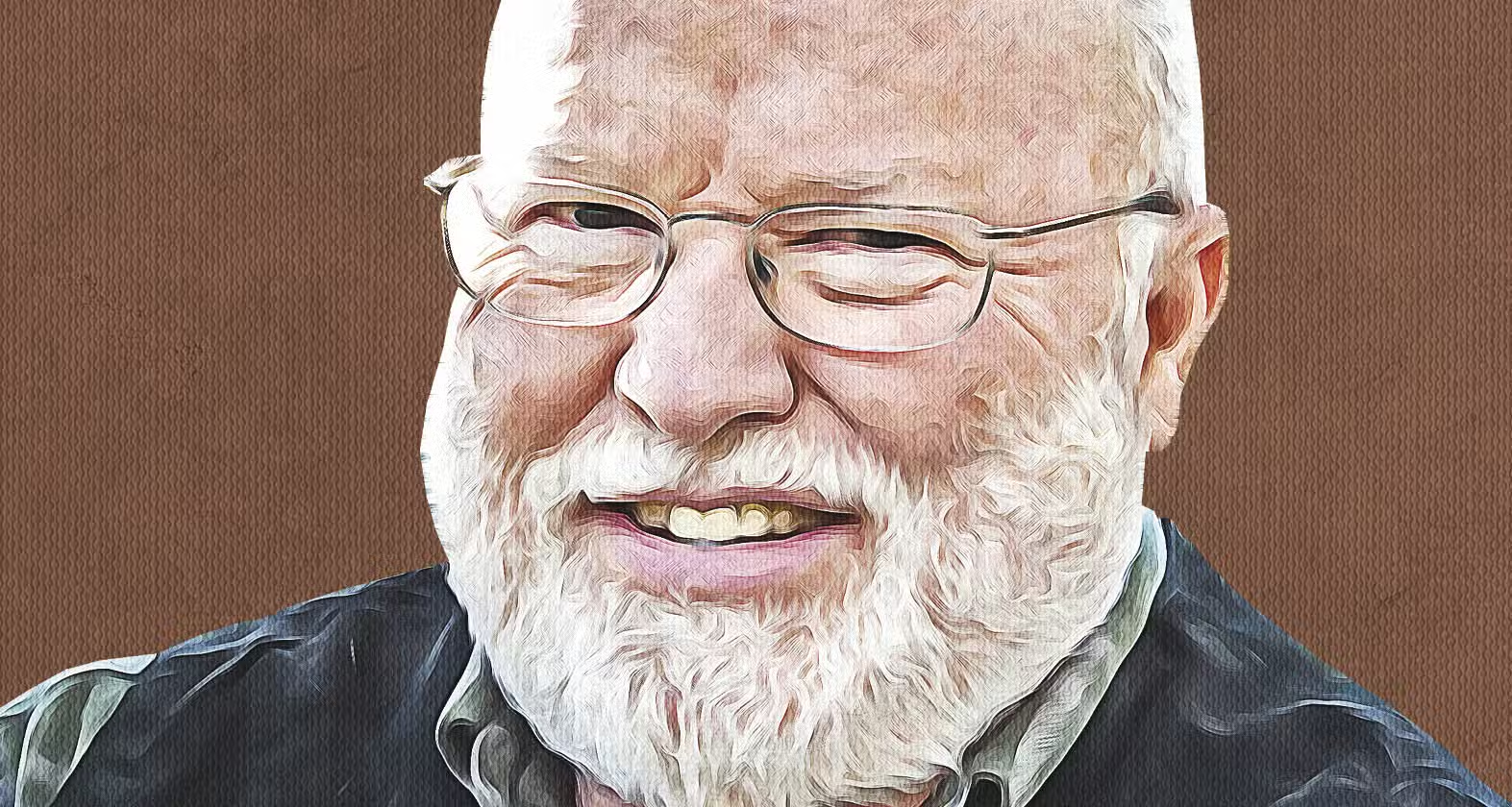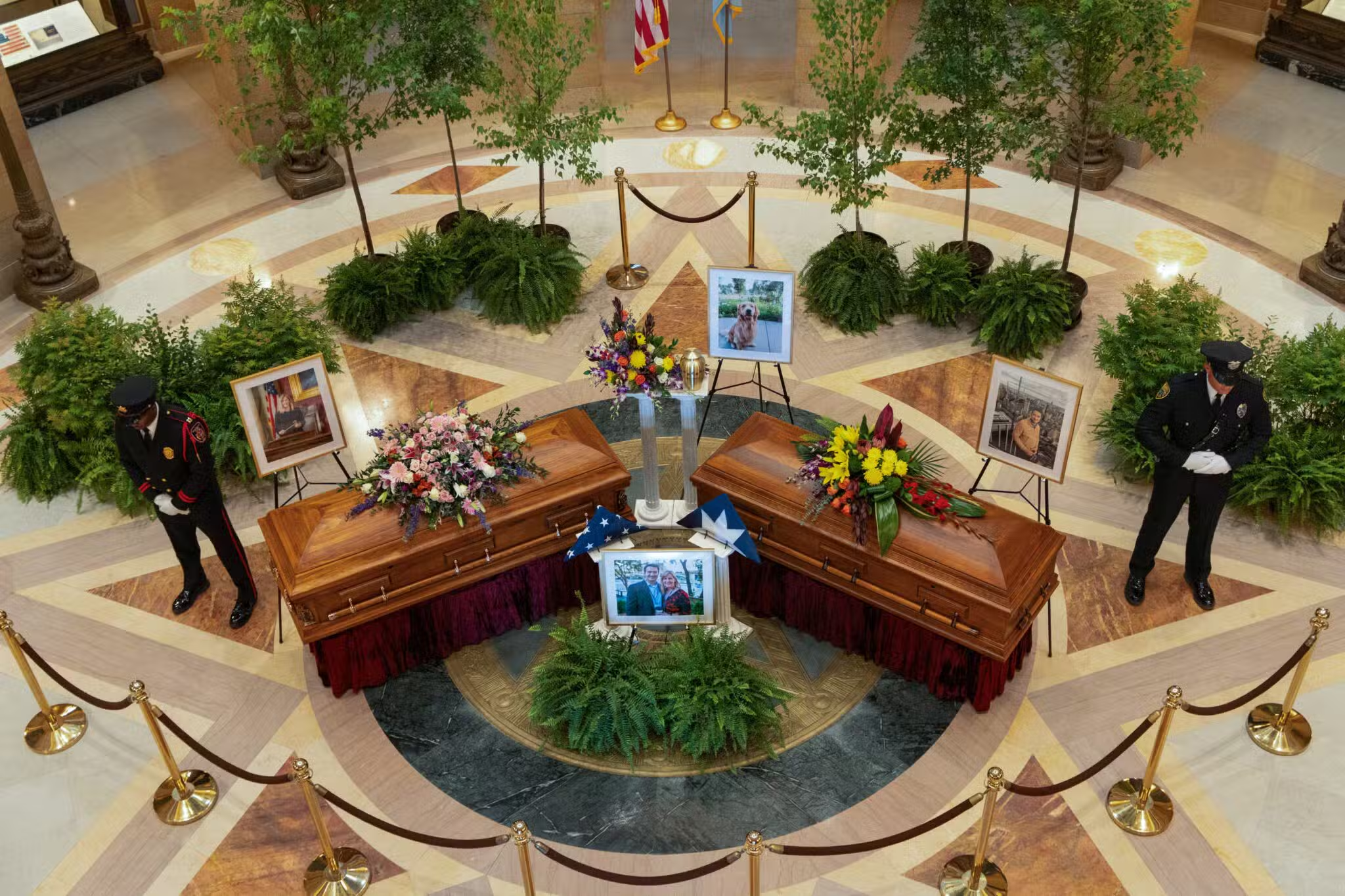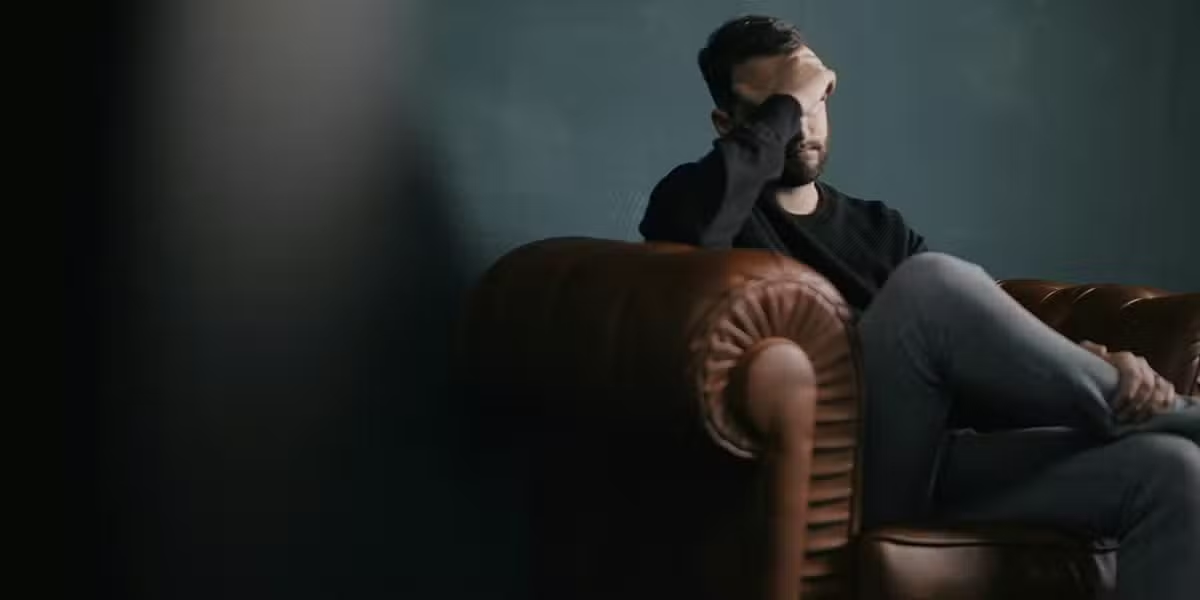His is a Franciscan legacy—one marked by love, laughter, peace, justice, and inclusivity. Three authors reflect on Father Richard Rohr’s impact on them and spiritual seekers everywhere.
With Love and Gratitude
By Pauline J. Albert, PhD
I am frequently asked how I can remain Catholic given the many missteps of the Church’s leaders. My answer has evolved, largely because of all that I have learned from the mystics and a few modern-day prophets. The most important of my prophets is Father Richard Rohr. From an early age, around 8 or 9, I had a major problem with the story of a wrathful God and the teaching that Jesus died to atone for our sins. It just didn’t make sense to me. From Father Richard I learned there was an alternative story promulgated by Franciscan theologians—that Jesus did not come to atone for the sin of Adam and Eve and the rest of humankind, but rather he came due to God’s immense love. Jesus came to show us how to love. Now, that I can get behind.
I am a social scientist, and my focus is human and spiritual development. Social scientists do their research based on empirical evidence. We are careful about examining theories and assumptions, and developing hypotheses based on observation and measurement of directly experienced phenomena. It has been a long journey to grow in my faith, not rely on what I was told to believe, and search for deeper meanings.
After many years of reading and prayerful reflection about these two different stories about why Jesus came, I realized that all of theology is theory—a sense-making device—developed by humans to “make sense” of Jesus’ life on earth. Is this not what Sts. Francis and Clare of Assisi did? They prayed and contemplated the Gospel and lived out of this sense that imitating Jesus and loving all of God’s creation was “the way, the truth, and the life” (Jn 14:6).
Thus, with good conscience, I have come to live out of the Catholic love story rather than the sin story—or theory. I have Father Richard to thank for breaking open this story, for breaking me open to embrace the incarnation—that is, Jesus’ incarnation as well as my own and that of my fellow human beings. Father Richard’s magnum opus, The Universal Christ, teaches that with love, people heal from pain, injustice, and life’s many twists and turns. People do not heal from being shamed over their missteps. I know that from both experience and extensive empirical research.
We live in a time where there is a desperate need for love, compassion, and healing. Jesus, as well as Francis and Clare of Assisi, are exemplars of these virtues. I’d like to close with a story that exemplifies the importance of shifting our perspective and living out of love.
Bullying is a terrible problem in our schools. In a recent podcast, I learned about Aaron Stark. His TED Talk describes how he was so bullied in school that he had begun to plan a school shooting. He was ready to go, when his best friend invited him to his home for a snack. The podcast gave more detail about his best friend, whom Aaron thanks in the TED presentation. The best friend’s mother invited Aaron over to eat pie that she had baked especially for him. That experience of validation and love from Aaron’s friend and his mother convinced him to change his mind and not shoot his fellow students. Aaron’s central message in his TED Talk is, “We have to give love to the people we think deserve it the least.”
Because of Father Richard I think about how my actions each day can support the healing of people’s woundedness.
Pauline J. Albert, PhD, is a writer, teacher, and research practitioner who contributes widely to St. Anthony Messenger and to Franciscan Media.
My Three-Step Waltz with Brother Richard
By Anne Lamott
I converted to Christianity in 1985 at a tiny progressive sanctuary church in Marin City, California, despite having been raised by highly intellectual atheists. I got clean and sober in 1986. So there was a gap year, where I came to church sick and probably smelly, longing for knowledge of this higher power my pastor preached about, some sort of loving energy that animated all of life, surrounding, co-creating, indwelling, the Love who had worn sandals.
My pastor frequently quoted Thomas Merton’s New Seeds of Contemplation, the radical treatise on how to develop and nurture a deeply contemplative and mystical way of life. For that last year of active alcoholism, I had Thomas as my companion. Thomas helped bring me to Jesus, to the risen Christ, and, by some mysterious spiritual Rube Goldberg machination, this led me to Richard Rohr.
The first book I read of Richard’s was Simplicity: The Freedom of Letting Go, which I knew by then was the third step in my 12-step recovery program. Letting go! Ugh. Not my strong suit. I’ve heard 12-steppers say that everything we let go of has claw marks on it, and yet practicing letting go really does make doing so somewhat more possible. Let go, or get dragged, right? So Rohr’s beautiful meditation and exhortation was my Bible, his voice always so wise and genial, never dogmatic or preachy—and so real.
And ever since, so many of his books and writings have hit the spot in my deepest inside places, at my hungriest for spiritual truth and the kindness that is Richard Rohr’s stock-in-trade. I have read Wondrous Encounters: Scripture for Lent every Easter, every year since 2010. Listen to this:
“There are two moments that matter. One is when you know that your one and only life is absolutely valuable and alive. The other is when you know your life, as presently lived, is entirely pointless and empty. You need both of them to keep you going in the right direction. Lent is about both. The first such moment gives you energy and joy by connecting you with your ultimate Source and Ground. The second gives you limits and boundaries, and a proper humility, so you keep seeking the Source and Ground and not just your small self.”
That is all I ever need to remember on any given day, the ultimate condensation of the first three steps, or the Three-Step Waltz, as we call it: I can’t; God can; I think I’ll let God. I am powerless over people, places, and things, unable to save or fix or rescue anyone, including myself. But God can, through the movement of grace in our lives, grace as beloved community, grace as spiritual WD-40. So maybe, because of the Gift of Desperation, I’ll let God. It was God as the Gift of Desperation that ultimately got me sober. Later, Good Orderly Direction helped guide me, and just yesterday, Grace over Drama helped me once again release my grown, clean, and sober son to his own hero’s journey (Thank you, Jesus.).
I could have just kept reading Wondrous Encounters over and over for all my needs and questions to be met. And yet, the following year, Breathing Under Water was published. This masterpiece was a merge, a marriage of the 12 Steps and the Gospel message to all who are broken, addicted, and scared. He writes, “Stinking thinking is the universal addiction.” This is one of the most stunning, succinct, and profound sentences I’ve ever heard. And this is indeed a book for anyone and ev-eryone who cannot stop creating trances and numbness via alcohol, drugs, sex, workaholism, or toxic obsessive thinking. (I once took the Alcoholic’s 20 Questions on Drinking, only I substituted the word Thinking for Drinking: “Has thinking ever damaged your primary relationships? Has thinking ever interfered with your work life? Do you ever think alone?” I got all 20 right. I was clearly a “thinkaholic”.)
“We are all spiritually powerless, however,” Rohr writes in Breathing, “and not just those physically addicted to a substance, which is why I address this book [Breathing Under Water] to everyone. Alcoholics just have their powerlessness visible for all to see. The rest of us disguise it in different ways, and overcompensate for our more hidden and subtle addictions and attachments, especially our addiction to our way of thinking.”
Over the years, I’ve read many of Richard’s articles and papers on peace and justice, evolutionary love, radical self-love, suffering and new life, eco-spirituality, and absolute inclusivity, all bathed in our union with the Cosmic Christ, God’s astonishing maternal love for the world. But I always return to Breathing Under Water, where the Gospel meets the 12 Steps, through the heart and words of this incredibly sweet Franciscan. Richard shows the reader that the 12-step program “parallels, mirrors, and makes practical the same messages that Jesus gave us.”

“We do not think ourselves into new ways of living.
We live ourselves into new ways of thinking.”
―Richard Rohr
Here is the union of the two:
We suffer to get well.
We surrender to win.
We die to live.
We give it away to keep it.
The title Breathing Under Water comes from a poem about overwhelm and surrender by Carol Bieleck, RSCJ, the last lines of which read:
“And I knew then, there was neither flight, nor death, nor drowning.
That when the sea comes calling you stop being neighbors
Well acquainted, friendly-at-a-distance, neighbors
And you give your house for a coral castle,
And you learn to breathe underwater.”
As a 12-stepper who has known degradation, hopelessness, self-loathing, and resurrection, who has given her house for a coral castle most days and who has learned to breathe underwater, one day at a time, occasionally gulping, gasping, and spluttering, I’ve learned that the secret to life and serenity begins with the third step, where we make a decision to turn our will and our lives over to the care of God as we each understand God. The care of God! The care of God, rather than the voice of addiction, the superego, the Enemy? How?
I recommend you read the book with a highlighter beside you. You will highlight something in every chapter—about powerlessness, the raging ego, hope, surrender, salvation, setbacks, grace, making amends, and opening our hearts to bright, cooling ribbons of cosmic and earthly love, the very reason we are here.
If you or a loved one has suffered or are suffering the slavery and humiliation of addiction, this book is a blueprint for freedom, new life, a path with a little light to see by, the coral castle. As we read in Alcoholics Anonymous’ The Big Book (words that Richard Rohr might easily have written):
“Abandon yourself to God as you understand God. Admit your faults to Him and to your fellows. Clear away the wreckage of your past. Give freely of what you find and join us. We shall be with you in the Fellowship of the Spirit, and you will surely meet some of us as you trudge the Road of Happy Destiny. May God bless you and keep you—until then.”
As we often tell newcomers at our meetings, “Give it a try, and if, after a month or so, you are not feeling happier and more peaceful, we will gladly refund your misery.”
And if you do give the path described in Breathing Under Water a try, buckle up, because Brother Rohr may just take you to places you’ve both avoided and longed for, to truth, union, joy, laughter, and, greatest of all, to your own precious self, here on earth with us, child of God.
Anne Lamott is a New York Times best-selling author of novels and nonfiction and an inductee into the California Hall of Fame. She lives in northern California.
The Genius of the And
By Brian D. McLaren
A few months ago, Richard and I were having dinner at one of his favorite restaurants in Albuquerque.
“A lot of people think of you as ‘the contemplation guy,’” I said, “and little more.”
“Yes, I think you’re right,” he replied.
“I think you’re so much more,” I said, which gave me a chance to share with him how I have come to understand him and his work.
Getting a chance to share with him like this was especially poignant.
Over recent decades, Richard has survived multiple bouts with cancer. Last year, yet another form of cancer was spreading through his body. Over the summer, he was so frail that many of us suspected he was near the end. Fortunately, after the new cancer was discovered, the treatment had given him a burst of energy, which made it possible for us to have a meal and evening of conversation.
I told Richard that I felt he is a lot like Thomas Merton. What Sue Monk Kidd said of Merton (in her 2007 foreword to New Seeds of Contemplation) applies equally to Richard: He is “multifaceted, complex, even self-contradictory, meaning he [is] able to hold within his extravagant personality a wide range of ambiguities, paradoxes, and selves.”
Richard often says that the most important word in the name of the Center for Action and Contemplation (CAC) is the and. In other words, what Richard has been about has been to hold multiple realities in creative tension. Where people normally insert a versus, Richard inserts an and.
Five examples come immediately to mind, beginning with action and contemplation.
Contemplation, the art of “seeing things whole” and “meeting all the reality we can bear” (as Richard often describes it), is beautiful, groundbreaking, and absolutely necessary in our fractious world today. But without action, contemplation can become yet another pastime of the privileged, adding the prize of personal peace and inner happiness to all their other luxuries. Like Sts. Francis and Clare, Richard instinctively links the inner journey with the outer, the pursuit of inner peace with peace in the world at large, and quiet serenity with the often noisy struggle for justice.
Richard has consistently integrated spirituality and psychology. Years ago, as he worked with men in prison, he realized that nearly all of them had deep inner wounds that needed to be understood. In the years since, by incorporating the insight of Carl Jung, the Enneagram, and many other psychological resources, Richard has been eager to integrate psychological health with spiritual growth, and vice versa.
More broadly, Richard has been committed to integrating faith and science, and especially ecology. It’s no wonder that he, like fellow Franciscan Ilia Delio, OSF, takes physical creation so seriously, calling it the original Bible, God’s first self-revelation.
From exploring new understandings of quantum entanglement to taking delight in a majestic cottonwood tree to pondering the vast wonder of an expanding universe, Richard sees the glory in every this, every that, echoing the “Canticle of the Sun.”
More broadly still, Richard has integrated simplicity and learning. He has embodied a creative tension that runs deep in the Franciscan movement, holding together both the moral simplicity of Francis and Clare and the intellectual brilliance of Bonaventure and John Duns Scotus. To be simple, you don’t have to be stupid, Richard knows. In fact, intellectual curiosity and humble simplicity go perfectly together.
Finally, also echoing Francis and Clare, Richard has devoted himself to both institutions and movements. He is leaving a legacy—a center, which is a young institution. But if you spend much time around the CAC, you’ll hear folks talking about the larger movement the institution exists to serve—a movement that lives out Franciscan values, Jesus values, Gospel values.
On a recent Zoom call, someone asked Richard what his “love language” was. Words, touch, quality time, gifts, and acts of service all had their place, he said. But what matters most to him is when people care about the things he cares about and join in that good work. For me and so many of us, that means being about the and.
Brian D. McLaren is the dean of faculty for the Center for Action and Contemplation. He and his wife, Grace, have four adult children and five grandchildren.









11 thoughts on “Richard Rohr: Modern-Day Mystic”
Thank you for sharing your wealth of goodness
God Bless each day and each hour and each moment in sharing quality time in Jesus’s Name and His Universe
Love Chaplain Debbie Smith and family
Father Richard is the father so many of us have never had, the brother that siblings would love to buddy up with, and an ever loving friend of justice.
I listened to the talks on male initiation and read “Adam’s Return” during the height of COVID. As a female I mustered up the courage to recommend them to the males in my circle.
I have fallen in love with so many Saints and Mystics because of Father Richard, and have also learned so much more about love.
Abundant Blessings to CAC!
It would not be an exaggeration to say that the discovery over just a few short months of Fr Rohr and his insight has changed my life and is continuing to do so. I do not even know how I discovered him. (Well, in actuality, I believe I do). I thank God for his message; so vastly different than the one I heard in my Lutheran upbringing. I am taking the Breathing Under Water course beginning in a month, as well.
Hello. I am constantly enriched by the writings of Fr. Richard. I am wondering if there is more information on “lamenting” and if you know of anyone who has given workshops on the topic.
Fr Rohr’s teachings have been enriching and transforming me for over 30 years now. And most recently he has led me to reexamine my faith through the theological lens of St Francis. I’m sure he knows how much he is loved and appreciated, and what a positive impact he has made.
Hi, I’m from the UK. Many years ago now, Richard Rohr “came into my life” and literally saved my soul and heart from the trauma of my childhood and first marriage. I’m not completely healed, but thanks to RR, I’m here. Recently, my husband (a Deacon in the RC Church) has been bullied by our Parish Priest and has stepped away from parish life for a time. He’s deeply affected by the whole thing and has started to study RR. Thank you.
Richard Rohr has been my spiritual guide since the 1970’s. He is real, speaks good sense with words to ponder and live by. I am forever grateful that I was introduced to his books, tapes and, speaking engagements. He truly is a God send. Thank you Fr. Rohr, thank you!
No matter how much I read about topics such as, universal consciousness, I just don’t get it. One of my daughters belongs to the Unity Church whom, in my opinion, has the adudacity to call themselves the Unity Christian Church. They borrow what they like from the bible, from other religions, deny Jesus is the son of God, believe they will become as divine as Jesus and resurrect themsleves. He did not ressurect himself; he was dead. They say they believe in the sacraments but change the meaning of them. Also state they interpret the Bible metaphysially. . How convenient.
I agree. Am grateful that Father Rohr has touched so many hearts. He just hasn’t touched mine. So many of his concepts just seem like gibberish to me.
Hi Mary Kate,
I am sending all my love to both you and your daughter. I had this kind of a painful disconnect with my mother, who is now dead. There is no shame in your “not getting” universal consciousness. Perhaps no one “gets” universal consciousness, but sometimes we might “taste” it. I would wager that one of the times you tasted it was when you looked deep into your newborn daughter’s eyes. What has been helpful to me is to remember that my idea of God is not God. I would invite you to hold your daughter and yourself in your heart with gentleness, and bring spaciousness and curiosity to your judgments. Sending you both many blessings!
When I first read the daily meditations frpm CAC and Father Richard, I ran away! I found the ideas too
dark. Recently, a dear friend shared his delight in all that he read and heard from Richard. I looked again and lo! Light! What I am learning now from Richard has turned me around, healed me where I needed healing. Thank you, kind sir!